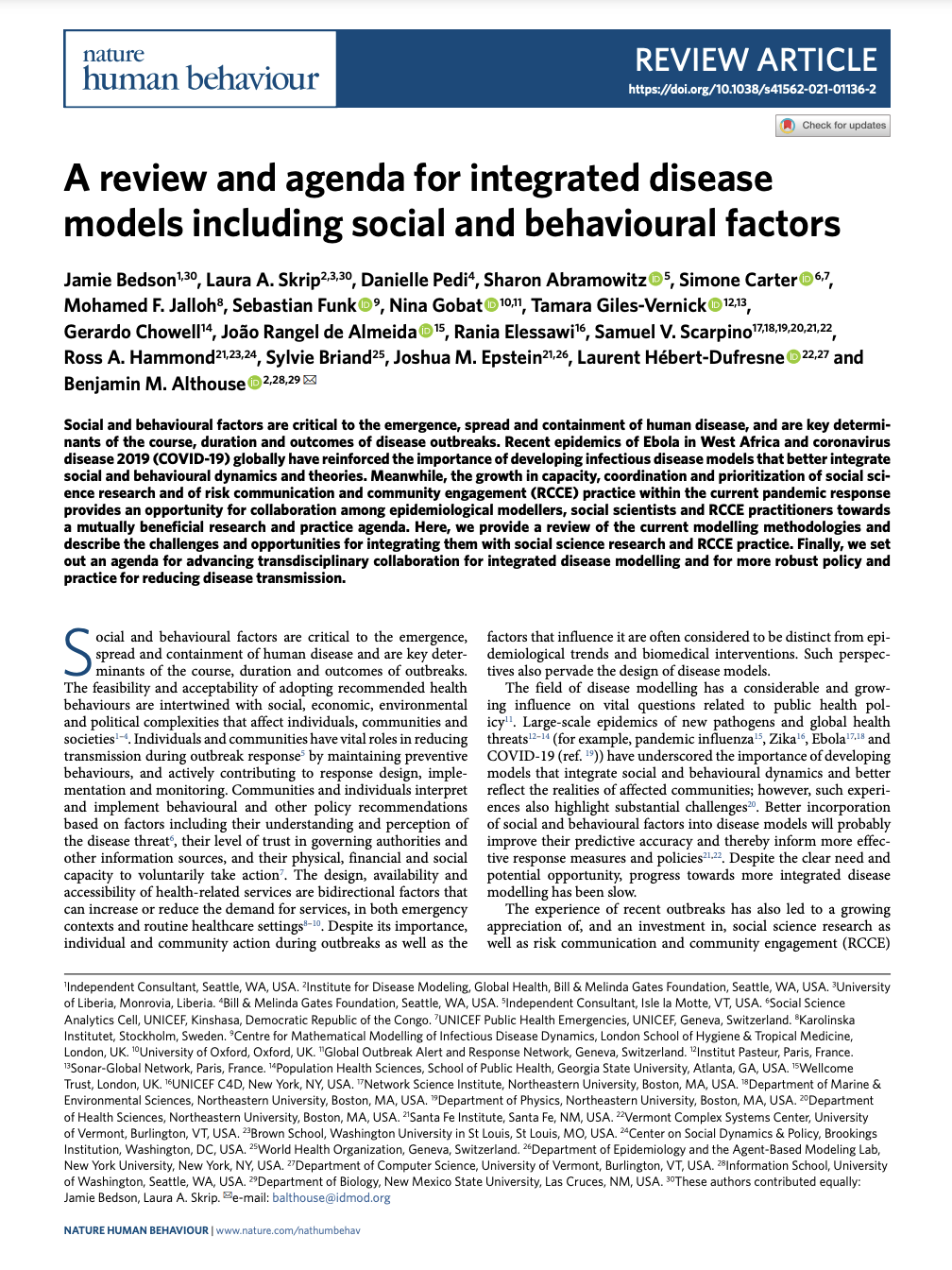A review and agenda for integrated disease models including social and behavioural factors
Description
Social and behavioural factors are critical to the emergence, spread and containment of human disease, and are key determinants of the course, duration and outcomes of disease outbreaks. Recent epidemics of Ebola in West Africa and coronavirus disease 2019 (COVID-19) globally have reinforced the importance of developing infectious disease models that better integrate social and behavioural dynamics and theories. Meanwhile, the growth in capacity, coordination and prioritization of social science research and of risk communication and community engagement (RCCE) practice within the current pandemic response provides an opportunity for collaboration among epidemiological modellers, social scientists and RCCE practitioners towards a mutually beneficial research and practice agenda. Here, we provide a review of the current modelling methodologies and describe the challenges and opportunities for integrating them with social science research and RCCE practice. Finally, we set out an agenda for advancing transdisciplinary collaboration for integrated disease modelling and for more robust policy and practice for reducing disease transmission.
Additional languages

DETAILS
Publication
Authors
Emergency
Scope
Language
Region
Keywords

